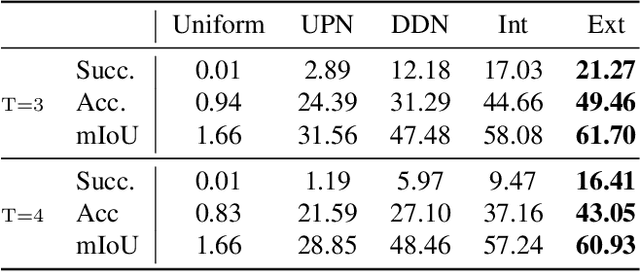Procedure Planning in Instructional Videos via Contextual Modeling and Model-based Policy Learning
Paper and Code
Oct 08, 2021



Learning new skills by observing humans' behaviors is an essential capability of AI. In this work, we leverage instructional videos to study humans' decision-making processes, focusing on learning a model to plan goal-directed actions in real-life videos. In contrast to conventional action recognition, goal-directed actions are based on expectations of their outcomes requiring causal knowledge of potential consequences of actions. Thus, integrating the environment structure with goals is critical for solving this task. Previous works learn a single world model will fail to distinguish various tasks, resulting in an ambiguous latent space; planning through it will gradually neglect the desired outcomes since the global information of the future goal degrades quickly as the procedure evolves. We address these limitations with a new formulation of procedure planning and propose novel algorithms to model human behaviors through Bayesian Inference and model-based Imitation Learning. Experiments conducted on real-world instructional videos show that our method can achieve state-of-the-art performance in reaching the indicated goals. Furthermore, the learned contextual information presents interesting features for planning in a latent space.
 Add to Chrome
Add to Chrome Add to Firefox
Add to Firefox Add to Edge
Add to Edge